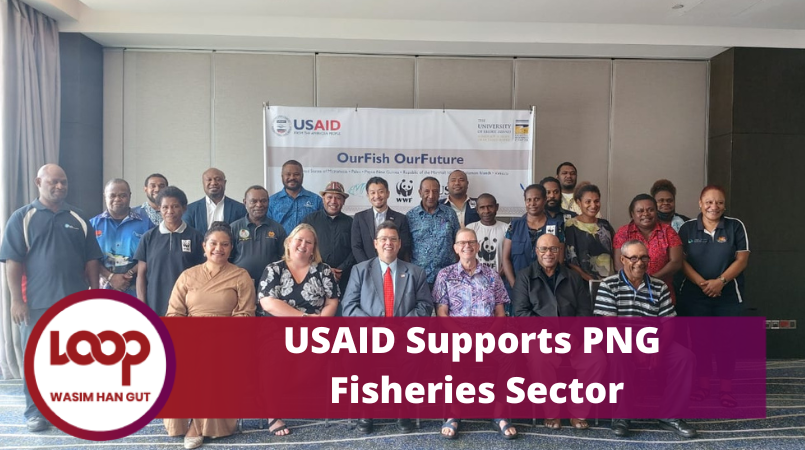
The United States Government through USAID is increasing its support to the fisheries sector in Papua New Guinea through its new project, OurFish OurFuture.
The USAID funded OurFish OurFuture National Inception Workshop for PNG, was held yesterday in Port Moresby officiated by U.S Charge d’Affaires for PNG, Joseph Zadrozny.
He said the implementation approach for the program is unique and that it will use a community-centered approach to ensure maximum impact with the people and communities being the core focus of the program.
“This community-based management approach demonstrates USAID’s commitment to empower local communities to design and lead initiatives to manage your own resources and improve your own well-being,” said Zadrozny.
The workshop was to assess the current ecosystem-based fisheries management status for PNG and identify gaps where the OurFish OurFuture program can usefully contribute to improving coastal fisheries management, compliance and enforcement, improving private and public partnerships, and improving the resilience of key actors, including youth and women.
Chief of Party of USAID OurFish OurFuture, Robert Reid gave an overview of the program and the its expected outcome.
“WWF has been working in Madang with these 15 fishing communities for the last decade and so we’re starting with those fishing communities here in PNG because they’re already well known with the communities. They’ve worked with a fisherman there and other community members on their programs, and then will scope out to other provinces as well later on,” said Reid.
The project will also identify potential members of a national advisory committee that will steer the implementation of the program in PNG over the next four years.
From Meiwok village in Madang Bogia District, Matthew Mirak had this to say on the program in his ward.
“Displa bai helpim community people blo mipla lo Bogia because mipla kisim planti idea pinis wantainm WWF (The program will help my community in Bogia, because we have received a lot of ideas working with WWF),” he said.
This five-year regional project from 2021-2026 is worth $15 million and aims to address the social and ecological drivers of illegal, unreported and unregulated fishing.
These has resulted in the degrading of coastal fisheries and biodiversity and negative impact on local livelihoods, food stability and maritime security in the 12 Pacific Island countries with a specific focus on six countries: Federated States of Micronesia, Palau, PNG, Republic of the Marshall Islands, Solomon Islands and Vanuatu.
